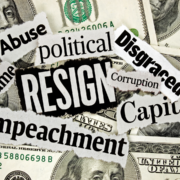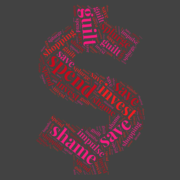Don’t let politics get in way of your investing
As originally appeared in The Jerusalem Post on August 13, 2022.
“The Democrats are the party that says government will make you smarter, taller, richer, and remove the crabgrass on your lawn. The Republicans are the party that says government doesn’t work and then they get elected and prove it. -P. J. O’Rourke
A few weeks ago I met with a lady who inherited a sizeable amount of money. She had little in the way of savings, made a very small salary working part-time and has virtually no pension. We spoke about what to do with the inheritance.
When I mentioned what I do and about investing in the US, she said no way. She proceeded to tell me that she reads a lot of alternative media and thinks the US is going socialist and that the country is in lousy shape. I will add that I have these types of conversations on a relatively frequent basis. She is certainly not alone.
For many, this week’s FBI raid on former president Trump’s home in Florida didn’t help their feeling that the country is no longer the flag-bearer of freedom. Whether you think a country is headed in the right direction or not, the question is whether these changes change the investment thesis of investing.
A few days ago I was watching Bloomberg TV, Barry Ritholtz, well-known financial pundit, and CIO of Ritholtz Asset Management, was a guest. He actually mentioned this issue when being asked about the FBI raid. He basically said that we give politicians too much credit for economic and market outcomes.
They confuse cause and effect and attribute to the actions of individuals what are really larger economic forces. He then spoke about great historical events like Pearl Harbor, the Cuban Missile Crisis, Watergate, and all the way to 9/11 and Trump. He said that ultimately, markets take most of their long-term direction from corporate earnings, cash flows, and valuations.
Robin Powell of Minchin Moore Private Wealth Advisors wrote, “As citizens of a democracy, we all have a genuine interest in election outcomes and a responsibility to exercise our choices. And there may be genuine differences among the parties on particular issues that influence us one way or another – whether it be about economic management or climate change or health and education or foreign affairs and defense.
“But amid the noise of a campaign and the often exaggerated claims of one side or the other, it can be a mistake to let our emotional responses as citizens influence our portfolios. Ultimately, as investors, we need to put aside our ideological biases and think beyond election day.”
I would explain it a bit differently. First, it’s important to distinguish between the developed world and emerging economies.
Without a doubt, political policy in smaller emerging markets can have huge implications on one’s investments. Governments can impose foreign currency limits, make it illegal to own certain types of assets and even engage in confiscatory practice.
The developed world on the other hand is different. At the end of the day, and pardon my French, even if you think the US is going to hell in a handbasket, it doesn’t mean that 350 million people are going to turn off the lights and leave the country. They will still get up in the morning and shower with soap and shampoo, eat and go to work. People will still use the Internet, need Microsoft Windows to run their computers, use cellphones, buy homes, etc. Life will go on and multinational corporations will still make billions of dollars annually.
According to research from Hartford Fund, if you take the performance of the S&P 500 index from 1961 and invested $10,000, you would have had almost $5 million by the end of 2021. During that time period in the US, there were six presidents from each party.
Of course, past performance is no indication of future returns, but it’s interesting to note that even those who we would broadly define as not having the most successful of presidencies had good market returns during their tenure. Certain sectors of the market may do better than others based on certain policies, but if you look at the broader market, it doesn’t seem to make a huge difference.
How do you explain that? It’s the profits, not who is president that makes the difference.
In this space, I often quote a former teacher, Rabbi Moskowitz, who recently passed away. For this column, I will change his words slightly. “Don’t let your political emotions get in the way of your investment thinking process.”
The information contained in this article reflects the opinion of the author and not necessarily the opinion of Portfolio Resources Group, Inc. or its affiliates.
Aaron Katsman is the author of Retirement GPS: How to Navigate Your Way to A Secure Financial Future with Global Investing (McGraw-Hill), and is a licensed financial professional both in the United States and Israel, and helps people who open investment accounts in the United States. Securities are offered through Portfolio Resources Group, Inc. (www.prginc.net). Member FINRA, SIPC, MSRB, SIFMA, FSI. For more information, call (02) 624-0995 visit www.aaronkatsman.com or email aaron@lighthousecapital.co.il.








